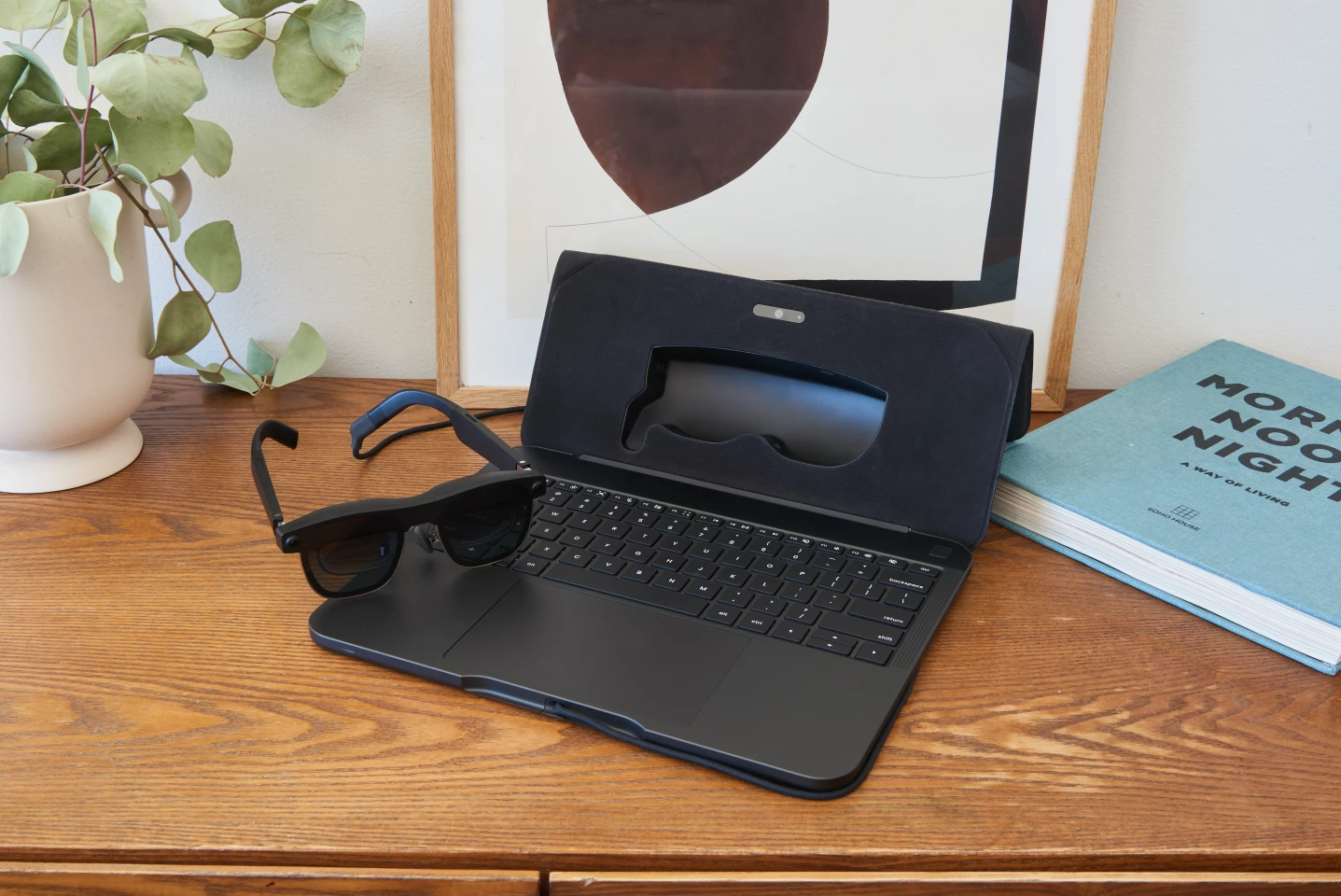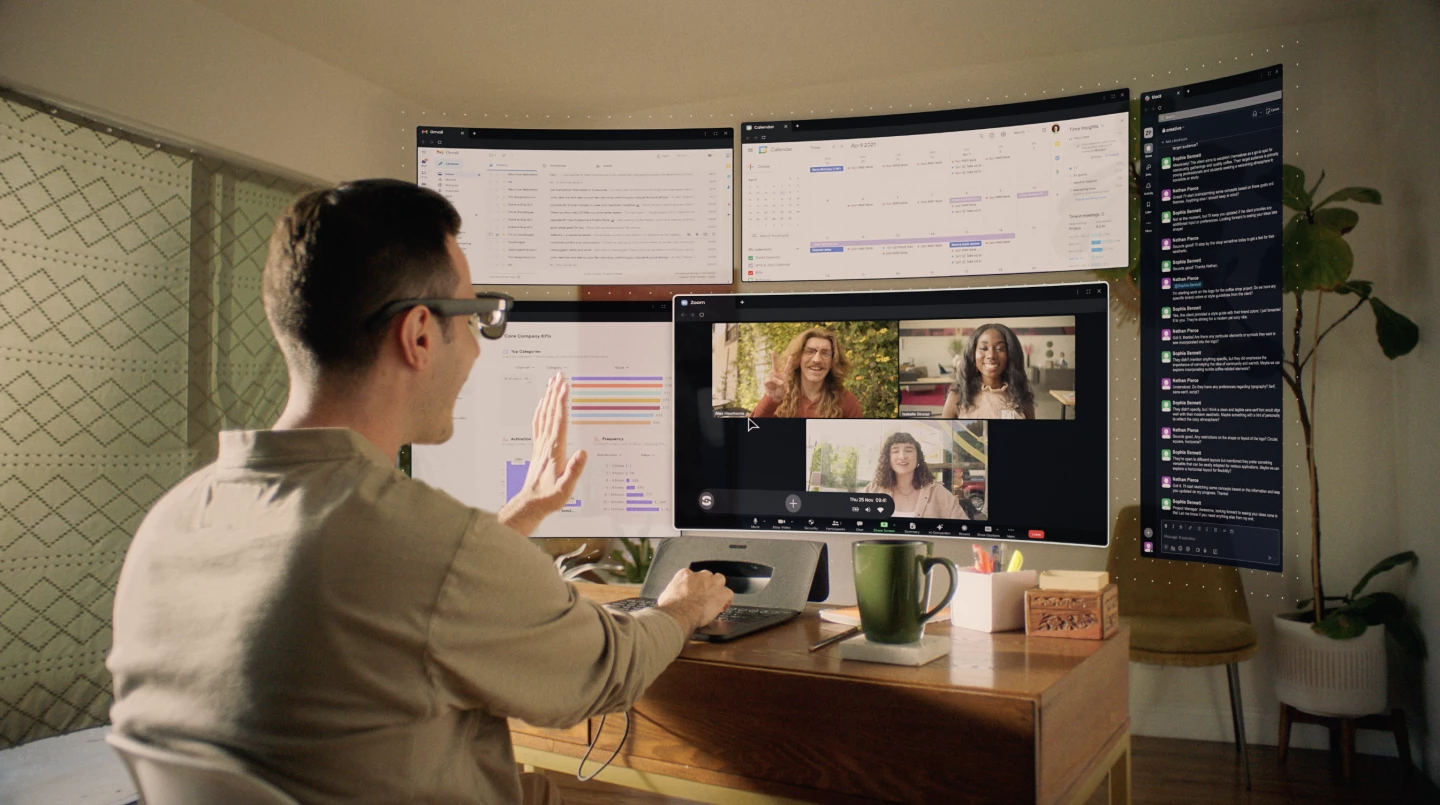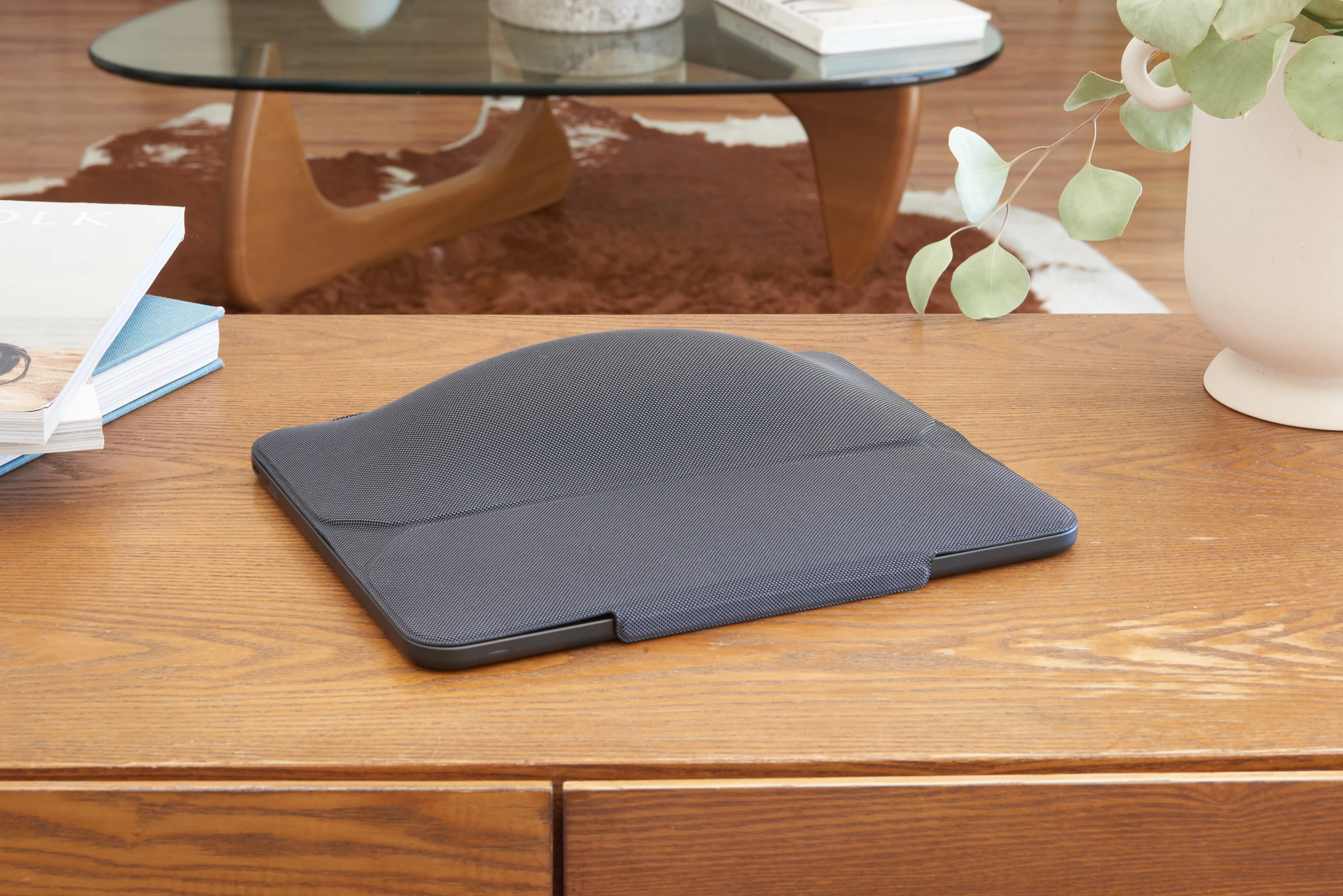Around this time last year, tech startup Sightful invited a thousand productivity pioneers to be the first to experience the Spacetop system, a laptop that uses AR glasses for a display. Now the updated and refined Gen 1 product has gone up for sale.
The general idea here is that instead of having to hunch over a relatively small screen when remote working on a laptop, the user would pop on a pair of augmented-reality glasses cabled to a keyboard base about the same size as a 13-inch laptop and be treated to a 100-inch virtual display in front of their eyes.
Interaction with the productivity windows, video boxes, games or whatever projected out front is about the same as with a standard laptop, via the keyboard and touchpad. The original system pinned the virtual display in place, which could be zoomed in or out as the user moved back and forth thanks to a tracking camera, but the company confirmed to us that this feature is not currently supported in the G1 release. The demo video (at the end of this overview) suggests that such things are now controlled by the trackpad instead.

The dock for between-use AR glasses has now moved from just above the keyboard section to the angled upper folio-like cover, but the funky augmented specs are still hard-wired to the base. The chipset is now a Snapdragon QCS8550 flavor with KRYO CPU and Adreno 740 graphics plus AI processing, which is reported to be 70% faster than the Qualcomm brains found in the Early Access model.
Onboard system memory shapes up as 16 GB of LPDDR5 RAM, which is paired with 128 GB of UFS 3.1 storage (though not all of that is available to the user). Wireless chops have been upgraded to Wi-Fi 7 and Bluetooth 5.3, plus there's 5G/LTE cooked in too. The base includes a 60-Wh battery for up to 8 hours of per-charge use, and there are two USB-C ports for peripherals.
The whole shebang runs an operating system called Space OS that's been optimized for spatial computing, and a 5-megapixel webcam is included as well, though users may opt to use an avatar for video chats rather than share a headshot sporting goofy AR glasses.
The wearable part of the equation weighs in at 3 oz (85 g) and sports two OLED display panels for 1,920 x 1,080 pixels per eye at a refresh rate of 90 Hz and a 50-degree field of view. Auto-dimming "enhances focus and provides lossless text legibility" in brightly lit environments. Usefully, the setup can support custom prescription inserts for those who already wear glasses.
The G1 system glasses also feature an open-ear speaker for each side of the head plus a microphone for voice comms, and there's a 6-watt base speaker too.

"We introduced Spacetop to free people from the constraints of time and space, as we don’t believe people should be stuck in 14-inch screens," said Tamir Berliner, CEO and co-founder of Sightful. "We firmly believe in the power of AR glasses as the first step. Physical reality has always been the limiting factor – bulky, uncomfortable headsets, limited battery and processing power, and a world that is not yet built for daily AR. This is why we collaborating with the world leading companies to deliver the most delightful product, and what we see as the world’s best laptop."
Qualcomm, Wistron and XReal are among the partners that Sightful is working with to deliver the AR laptop. The Spacetop G1 is open for reservations now at US$100 per unit – the final price is US$1,900 – with shipping expected to start from October. The video below has more.
Product page: Spacetop G1









